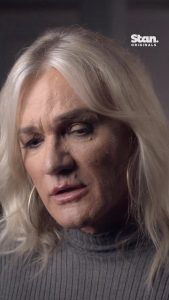Australian Basketball player Liz Cambage has opted out from the upcoming Tokyo Olympics 2020 tournament due to some mental health concerns, announced the Australian Olympic Committee (AOC) on Friday. The star sportsperson plays for the Las Vegas Aces of the Women’s National Basketball Association (WBNA).
Cambage, the Opals’ best player, said that she is “a long way from her mental and physical peak” just a week before the games and that’s why has withdrawn her participation from the Olympics.
Also Read: Tokyo Games: Archer Deepika Kumari says past Olympics losses will play on mind
“Anyone that knows me knows one of my biggest dreams is winning an Olympic gold medal with the Opals. Every athlete competing in the Olympic Games should be at their mental and physical peak, and at the moment, I’m a long way from where I want and need to be,” said the official statement released by the athlete on Twitter.
However, Cambage is not the first Olympic participant to withdraw their participation from the prestigious sports tournament. Before this, star tennis player Serena Williams also announced that she will not be participating in Tokyo 2020 citing mental health reasons.
Also Read: Basketball star Candace Parker to be the first woman on NBA 2k cover
Apart from them, former World No 1 Roger Federer, also announced his withdrawal from the 2020 Tokyo Olympics, owing to the knee injury that has been troubling him for some time now.
Tennis prime Bianca Andreescu also pulled out of the Summer Olympics earlier this week citing COVID concerns. Tennis professional Rafael Nadal and Dominic Thiem also announced their withdrawal for the same reasons
Tokyo Olympics 2020, which was delayed last year owing to the COVID-19 pandemic situation, is scheduled to begin on July 23. The tournament will be going on till August 4.
Recently, Japanese authorities announced that Olympic games will not have any spectators due to the ongoing threat of COVID-19 and a substantial number of cases still being active in Japan due to a patchy COVID-19 vaccine rollout.
The decision means the Games will be the first to take place largely behind closed doors — a blow to athletes who will now compete in front of largely empty stadiums.






